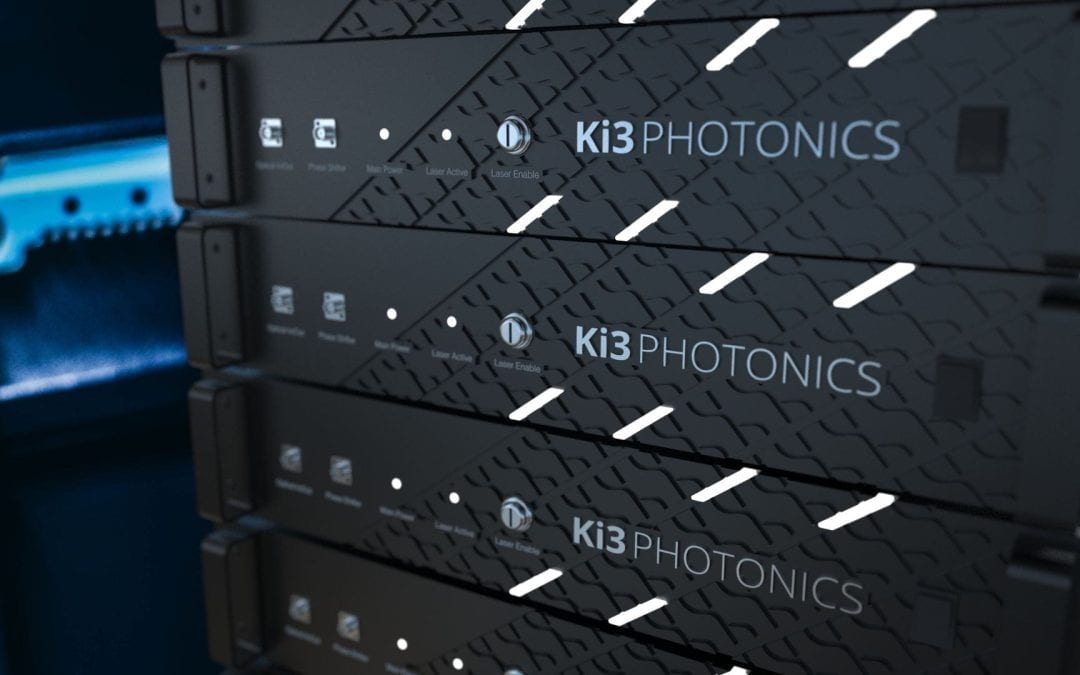Canadian startup Ki3 Photonics develops photonics hardware for the generation and processing of broadband quantum signals. The devices are designed to integrate into existing optical fiber networks, an essential feature for the development and commercial success of quantum technologies.
Today, organizations looking to benefit from quantum-enhanced capabilities typically use custom-built setups that might be difficult to operate and that do not necessarily integrate with existing communications infrastructures. These systems come at a significant cost in terms of both time and money.
Yoann Jestin and Piotr Roztocki, co-founders of Ki3 Photonics, envision a different scenario, one in which quantum devices fit into existing communications infrastructure and can be installed quickly and easily.
“Quantum networks are the glue of the quantum ecosystem, enabling quantum sensors and computers to exchange information, and also increasing the level of security between interconnected devices,” said Jestin, a materials scientist and Ki3 Photonics’ chief executive officer.
“The key is to be compatible with the sprawling classical infrastructure we already have deployed,” said Roztocki, a specialist in quantum photonics and the company’s chief technology officer. “You don’t want a company to come to you and say, ‘Here is special fiber and we’re going to need you to put it into the ground so you can use our devices.’ The ideal case is to use what’s already in place – the optical fiber that’s in the ground, things that are already deployed, technologies that we already use to communicate.
“So, there is a need for a quantum networking company focused on compatibility and scalability with existing telecommunications. That’s what drives our product development.”
While the eight-year-old start-up serves as an OEM supporting the quantum supply chain, its long-term vision is that of providing full-stack quantum networking solutions. Ki3’s products include a compact and energy-efficient source of quantum-entangled photon pairs, which transmit quantum information, and a stabilization system for fiber-based interferometers, for the processing of quantum signals. Both devices are housed in rackmount enclosures that comply with telecommunications industry standards.
Ki3 Photonics’ technology evolved from research conducted in the lab of Roberto Morandotti, a professor of physics at the Institut National de la Recherche Scientifique in Montreal. Jestin and Roztocki first met while working in the lab, which is world-renowned for its contributions in quantum optics and frequency comb sources.
The co-founders have workshopped their business model at the Creative Destruction Lab in Toronto, a highly-selective incubator for science and technology companies. They also placed third in the Deep Tech track of the 2021 SPIE Startup Challenge, a pitch competition hosted by the international society for optics and photonics.
Additionally, the U.S. Air Force awarded Ki3 Photonics and fellow Canadian startup Quantum Bridge Technologies a $450,000 grant in 2022 to explore the application of highly-entangled states of light toward cutting-edge functionalities in telecommunications and computing.
The company sees quantum networking testbeds as its first customers, and expects to develop partnerships with financial institutions, data centers, and telecommunications providers as the market evolves. In the near term, the co-founders are focusing on raising capital and building staff to help accelerate the development of the company and its technologies. As a member of the newest Duality accelerator cohort, they’re looking forward to networking with others in the quantum space and establishing partnerships.
“We are highly complementary to many of the companies working in quantum,” Jestin said. “We’re looking forward to working with Duality because it will further expose us to people working in the field, stimulating new partnerships and investments.”

